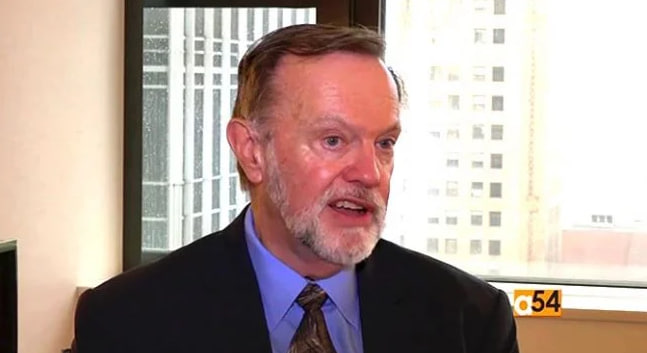Olayomi Koiki

Tibor Nagy, a former United States Assistant Secretary of State for Africa Affairs has expressed concerns about the intensified insecurity in Nigeria under the President Bola Tinubu-led government.
Nagy’s comments followed allegations made by Hon. Abdullahi Isah of Kontagora II, a lawmaker in the north-central state of Niger that terrorists – locally dubbed as bandits had overtaken the Nigerian Army training camp in Kontongora, raising the alarm over the nation’s deteriorating security situation.
In a Wednesday post on social media platform X, Nagy stated: “Only in Nigeria — can bandits take over the nation’s largest military training facility.
“Anywhere else in the world this would be obviously “fake news,” but in Nigeria even the most absurd and outrageous is possible. When will the nation get a decent Government?”
Meanwhile the Nigerian Defence Headquarters (DHQ) had refuted these claims, with Maj Gen Edward Buba, the Director of Defence Media Operations, asserting that “no inch of the training area was ceded to the terrorist.”
Buba emphasised that the allegations made by Hon. Abdullahi Isah of Kontagora II are “incorrect and inaccurate with realities on the ground,” reiterating the military’s commitment to maintaining control of the facility.
He acknowledged that troops had encountered terrorists in the region but stressed that ongoing military operations are aimed at countering these threats.
“Our troops are not relenting at [ensuring the] total destruction of these terrorists wherever they may be hiding,” the defence spokesman added.
Insecurity and violence in Nigeria
For more than a decade, civilians in Nigeria have faced multiple security threats and risk of atrocities as result of attacks, kidnappings and extortion by various non-state armed groups.
Since the start of 2024 civilians have faced intensified violence across Nigeria, and near-daily attacks by armed groups resulting in kidnappings and other abuses against civilians.
Armed groups and gangs, including so-called “bandits,” have – for many years – perpetrated widespread atrocities, including murder, rape, kidnapping, organized cattle-rustling and plunder. Armed herdsmen are also destroying vast swaths of farmland, prompting many farmers to abandon their land out of fear of attack.
In August, the Director General of the World Trade Organisation (WTO), Ngozi Okonjo-Iweala, said insecurity in Nigeria is weaponised by politicians for political and selfish reasons.
A Nigerian soldier, Suleiman S., also alleged that the government’s practice of paying ransoms to terrorists – dubbed as bandits in the country was hindering the military’s ability to effectively combat them.
He urged the public to redirect their blame from the Nigerian Army to the government, emphasising that soldiers are constrained by orders and cannot take independent action.
The soldier said the military has the capability to eradicate bandits, particularly in hotspots like Zamfara State forest within a week if given the necessary orders.
He expressed frustration that the military’s potential is being wasted due to a lack of direction from leadership, whom he accused of profiting from the ongoing crisis.
Nigerian authorities are not going to arrest Boko Haram terrorists, bandits, and other criminals because they were created for political purposes, human rights activist Omoyele Sowore had alleged in September.
Speaking when he appeared on Voice of The People FM, Sowore alleged that government officials have links with the criminals, using them to gain power and later protecting them.
